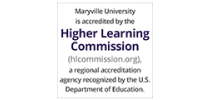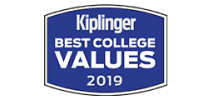

Online Pediatric Nurse Practitioner Programs
11% HIGHER THAN PNCB 2023 AVERAGE
What certifications do pediatric nurses need?
Children and young adults deserve expert care
Choosing to specialize as a pediatric nurse practitioner gives you the opportunity to impact a child’s life from birth to young adulthood. You can be the one who improves the well-being of children and their families by helping them get access to preventive care and sharing knowledge about making healthy choices. Maryville University’s online PNP degree programs offer the opportunity to focus your skill set and fortify your professional standing as a nurse
Online Pediatric Nurse Practitioner Programs
Important dates for 2026
Four Online PNP Programs
Why become a pediatric nurse practitioner?
A rewarding career in a lot of ways
Job outlook for pediatric nurse practitioners
There are many factors behind the increased demand for pediatric nurse practitioners. Favorable employment trends for pediatric NPs include:
- Data from The Clinical Advisor reports an annual median salary of $83,937 for pediatric NPs, based on 2012 numbers.
- The U.S. Bureau of Labor Statistics anticipates a 31% increase in job opportunities for nurse practitioners between 2012 and 2022.
- Scrubs Magazine identifies the pediatric nurse practitioner as one of the “Top 10 Highest Paying Nursing Specialties.”
- The role of nurse practitioner also ranked No. 1 on Kiplinger’s Personal Finance’s 2013 list of “Today’s Hottest Jobs.”
- An ongoing shortage of primary care and family medicine physicians. It is anticipated that by 2025, the nation will be short at least 100,000 family medicine doctors. Pediatric (primary care) nurse practitioners are predicted to be in particularly high demand due to the even greater scarcity of physicians in rural and inner city communities.
- The emergence of nurse-run clinics and growth in the number of traditional walk-in clinics in response to the Affordable Care Act.
- Higher levels of patient satisfaction of those treated by nurse practitioners.
Why choose Maryville?
We’re a private, four-year institution ranked as one of America’s Best Colleges by both U.S. News & World Report and Forbes. We’re also proud to have been named to the Military Friendly Schools List for the 6th consecutive year. When you choose us, you receive a highly flexible and highly regarded education with the added convenience of being delivered 100% online. Here are a few more reasons why we offer you the best path:
- Streamline your time and talent to earn a post-master’s certificate.
- Graduate from a program accredited by the Commission on Collegiate Nursing Education (CCNE).
- Enjoy a flexible and convenient 24/7 online learning model.
- Explore important topics that will help pave the way to a better future for yourself and the nurses who follow in your footsteps.
- Take the opportunity to conduct research via clinical inquiry courses that will challenge your assumptions.
- Learn from an expert faculty of nursing leaders who openly share their experiences and insights regarding public health and the nursing profession
Earn an education with a strong ROI
We’re proud to be recognized among the leaders in social mobility in our region*:
- No. 1 in social mobility among private colleges and universities in the St. Louis area
- No. 1 in lowest average debt among regional private peers
- Top 3 in St. Louis for graduation rates and early-career earnings
These rankings serve as indicators of strong ROI for our graduates — meaning your Maryville education can help you start faster and go further.
Founded in 1872 — Top Ranked for Today





Online PNP Curriculum
One rewarding career specialty.
Online MSN PNP Concentration
Begin your coursework the semester after you enroll with three entry points per year (January, May, and August ).
MSN | Core Courses
This course explores focused and comprehensive health assessments in a variety of settings and patients across the lifespan. This includes development of health promotion strategies and prioritization of care.
Prerequisite: Online - NURS 611, NURS 615
Corequisite: On Ground - NURS 615
This course focuses on the pharmacological foundation for safely prescribing medical regimens of illnesses for individuals across the lifespan. Also included are illness prevention, non-pharmacological and legal implications for prescriptive authority for the nurse practitioner.
Note: Selection of appropriate therapies, patient education and evaluation parameters are stressed.
For the PNP concentration you will need:
This course focuses on growth and development and milestones of pediatric patients using theories and evidence based practice. Students will learn anticipatory guidance techniques, health promotion and illness prevention concepts within the pediatric population, incorporating individual, cultural, ethnic, and spiritual preferences.
Prerequisite: NURS 611, NURS 615 and NURS 612 (may also be taken concurrently)
Corequisite: NURS 655C
This course is the first in a two-part pediatric primary care didactic sequence. In this course students will focus on acute and chronic primary health care problems of children and adolescents.
Prerequisite: NURS 611, NURS 612, NURS 615 & NURS 650
Corequisite: NURS 652 or NURS 652C
This is the first practicum course in the Pediatric Nurse Practitioner (PNP) program. Students will apply and integrate concepts presented in the NURS-651 with focus on applying knowledge and skills in pediatric primary care practice settings.
Prerequisite: NURS 650
Corequisite: NURS 651
This course is second in a two-part pediatric primary care didactic sequence. In this course students will focus on acute and chronic primary health care problems of children and adolescents.
Prerequisite: NURS 651 and NURS 652 or NURS 652C
Corequisite: NURS 654 or NURS 654C
This is the second practicum course in the Pediatric Nurse Practitioner (PNP) program. Students will apply and integrate concepts presented in the NURS 653 with focus on applying knowledge and skills in pediatric primary care practice settings.
Prerequisite: NURS 651 and NURS 652
Corequisite: NURS 653
Online BSN to DNP PNP Concentration
Begin your coursework the semester after you enroll with three entry points per year (January, May, and August ).
MSN | Core Courses
This course explores focused and comprehensive health assessments in a variety of settings and patients across the lifespan. This includes development of health promotion strategies and prioritization of care.
Prerequisite: Online - NURS 611, NURS 615
Corequisite: On Ground - NURS 615
This course focuses on the pharmacological foundation for safely prescribing medical regimens of illnesses for individuals across the lifespan. Also included are illness prevention, non-pharmacological and legal implications for prescriptive authority for the nurse practitioner.
Note: Selection of appropriate therapies, patient education and evaluation parameters are stressed.
For the PNP concentration you will need:
This course focuses on growth and development and milestones of pediatric patients using theories and evidence based practice. Students will learn anticipatory guidance techniques, health promotion and illness prevention concepts within the pediatric population, incorporating individual, cultural, ethnic, and spiritual preferences.
Prerequisite: NURS 611, NURS 615 and NURS 612 (may also be taken concurrently)
Corequisite: NURS 655C
This course is the first in a two-part pediatric primary care didactic sequence. In this course students will focus on acute and chronic primary health care problems of children and adolescents.
Prerequisite: NURS 611, NURS 612, NURS 615 & NURS 650
Corequisite: NURS 652 or NURS 652C
This is the first practicum course in the Pediatric Nurse Practitioner (PNP) program. Students will apply and integrate concepts presented in the NURS-651 with focus on applying knowledge and skills in pediatric primary care practice settings.
Prerequisite: NURS 650
Corequisite: NURS 651
This course is second in a two-part pediatric primary care didactic sequence. In this course students will focus on acute and chronic primary health care problems of children and adolescents.
Prerequisite: NURS 651 and NURS 652 or NURS 652C
Corequisite: NURS 654 or NURS 654C
This is the second practicum course in the Pediatric Nurse Practitioner (PNP) program. Students will apply and integrate concepts presented in the NURS 653 with focus on applying knowledge and skills in pediatric primary care practice settings.
Prerequisite: NURS 651 and NURS 652
Corequisite: NURS 653
Online MSN Post-Master's Nurse Practitioner Certificate PNP Concentration
Graduate Nursing Core Courses
Nurse Practitioner Core Courses
This course explores focused and comprehensive health assessments in a variety of settings and patients across the lifespan. This includes development of health promotion strategies and prioritization of care.
Prerequisite: Online - NURS 611, NURS 615
Corequisite: On Ground - NURS 615
This course focuses on the pharmacological foundation for safely prescribing medical regimens of illnesses for individuals across the lifespan. Also included are illness prevention, non-pharmacological and legal implications for prescriptive authority for the nurse practitioner.
Note: Selection of appropriate therapies, patient education and evaluation parameters are stressed.
For the PNP concentration you will need:
This course focuses on growth and development and milestones of pediatric patients using theories and evidence based practice. Students will learn anticipatory guidance techniques, health promotion and illness prevention concepts within the pediatric population, incorporating individual, cultural, ethnic, and spiritual preferences.
Prerequisite: NURS 611, NURS 615 and NURS 612 (may also be taken concurrently)
Corequisite: NURS 655C
This course is the first in a two-part pediatric primary care didactic sequence. In this course students will focus on acute and chronic primary health care problems of children and adolescents.
Prerequisite: NURS 611, NURS 612, NURS 615 & NURS 650
Corequisite: NURS 652 or NURS 652C
This is the first practicum course in the Pediatric Nurse Practitioner (PNP) program. Students will apply and integrate concepts presented in the NURS-651 with focus on applying knowledge and skills in pediatric primary care practice settings.
Prerequisite: NURS 650
Corequisite: NURS 651
This course is second in a two-part pediatric primary care didactic sequence. In this course students will focus on acute and chronic primary health care problems of children and adolescents.
Prerequisite: NURS 651 and NURS 652 or NURS 652C
Corequisite: NURS 654 or NURS 654C
This is the second practicum course in the Pediatric Nurse Practitioner (PNP) program. Students will apply and integrate concepts presented in the NURS 653 with focus on applying knowledge and skills in pediatric primary care practice settings.
Prerequisite: NURS 651 and NURS 652
Corequisite: NURS 653
Online DNP-NP Program PNP Concentration
Doctor of Nursing Practice Foundation Courses (15 credit hours)
This course is designed to introduce students to the purpose, content, and methods of epidemiology and biostatistics. Students will learn to evaluate and use output from statistical computing software.
Prerequisite: NURS 710
This course is designed to explore the phenomenon of interest related to the DNP scholarly project. Students will systematically develop a project protocol that is supported by the literature and submit it for department approval.
Course objectives:
- Develop a clinical question that guides the scholarly project.
- Read critically from professional nursing literature and other related disciplines to interpret, analyze and apply current research to improve practice.
- Apply a systematic approach to address clinical problems within healthcare organizations, including outcome measures and a sustainability plan to create meaningful changes in clinical outcomes.
- Develop a protocol and submit it to the DNP council for project approval.
- Develop the first chapter of the scholarly project that includes needed sections based on the selected DNP project format.
This course is designed to emphasize an objective approach to the integration and synthesis of knowledge. Manuscript preparation and practical use of evidence are incorporated to prepare students for the design of research proposals.
Prerequisite: NURS 700 and NURS 701
This course explores focused and comprehensive health assessments in a variety of settings and patients across the lifespan. This includes development of health promotion strategies and prioritization of care.
Prerequisite: Online - NURS 611, NURS 615
Corequisite:On Ground - NURS 615
This course is designed to provide an understanding of the measurement of phenomena as it relates to the research process. Procedures for selecting, applying, and interpreting the correct statistical application to a research problem will be presented with students processing the results.
Prerequisite: NURS 700
Doctor of Nursing Practice Capstone Courses (18 credit hours)
This course will allow the students to design an evidence-based project that will guide clinical practice. The feasibility of conducting this initiative will be explored. Potential funding sources and budget issues will be examined. Students will apply the elements of protection of human subjects and complete the Maryville IRB.
Prerequisite: NURS 700, NURS 701, NURS 702, and NURS 703
This course is designed to expand the students knowledge of clinical project data collection and analysis of data. Students will apply integrated research concepts pertaining to the clinical project. Utilization of various methods of data analysis and data management systems will be explored. Complete project data is needed prior to the start of this course.
Prerequisite: NURS 705 and NUS 705L
This course is designed to expand the students understanding of methods of dissemination in translational research. Variables that impact the analysis of data related to the scholarly project will be examined. Implications for patients, clinical practice and the healthcare systems will be explored and findings disseminated.
Prerequisite: NURS 706
Graduate Nursing Core Courses (6 credit hours)
Nurse Practitioner Core Courses (11 credit hours)
This course explores focused and comprehensive health assessments in a variety of settings and patients across the lifespan. This includes development of health promotion strategies and prioritization of care.
Prerequisite: Online - NURS 611, NURS 615
Corequisite: On Ground - NURS 615
This course focuses on the pharmacological foundation for safely prescribing medical regimens of illnesses for individuals across the lifespan. Also included are illness prevention, non-pharmacological and legal implications for prescriptive authority for the nurse practitioner.
Note: Selection of appropriate therapies, patient education and evaluation parameters are stressed.
Pediatric Nurse Practitioner (15 credit hours)
This course focuses on growth and development and milestones of pediatric patients using theories and evidence based practice. Students will learn anticipatory guidance techniques, health promotion and illness prevention concepts within the pediatric population, incorporating individual, cultural, ethnic, and spiritual preferences.
Prerequisite: NURS 611, NURS 615 and NURS 612 (may also be taken concurrently)
Corequisite: NURS 655C
This course is the first in a two-part pediatric primary care didactic sequence. In this course students will focus on acute and chronic primary health care problems of children and adolescents.
Prerequisite: NURS 611, NURS 612, NURS 615 & NURS 650
Corequisite: NURS 652 or NURS 652C
This is the first practicum course in the Pediatric Nurse Practitioner (PNP) program. Students will apply and integrate concepts presented in the NURS-651 with focus on applying knowledge and skills in pediatric primary care practice settings.
Prerequisite: NURS 650
Corequisite: NURS 651
This course is second in a two-part pediatric primary care didactic sequence. In this course students will focus on acute and chronic primary health care problems of children and adolescents.
Prerequisite: NURS 651 and NURS 652 or NURS 652C
Corequisite: NURS 654 or NURS 654C
This is the second practicum course in the Pediatric Nurse Practitioner (PNP) program. Students will apply and integrate concepts presented in the NURS 653 with focus on applying knowledge and skills in pediatric primary care practice settings.
Prerequisite: NURS 651 and NURS 652
Corequisite: NURS 653
Career Paths and Guides


